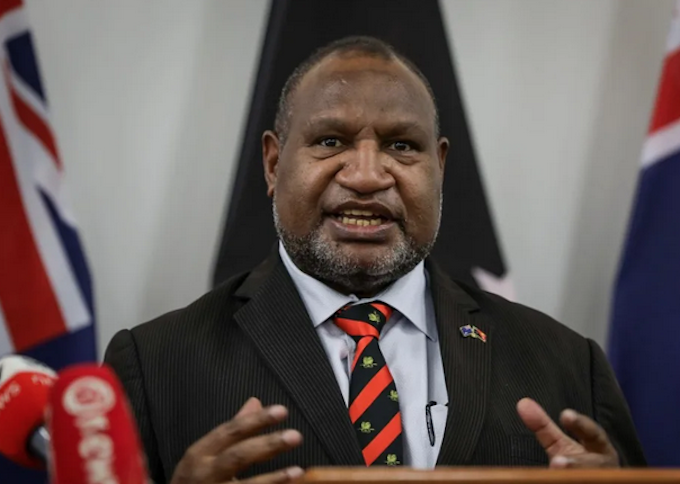
By Scott Waide, RNZ Pacific PNG correspondent
Papua New Guinea’s Prime Minister James Marape has successfully thwarted a vote of no confidence after 75 MPs backed him and 32 voted for the opposition.
But the session was not without drama.
Just after 10am, after the opposition leader moved a motion for a vote of no confidence announcing Renbo Paita as the alternate prime minister, Parliament Haus descended into momentary chaos as members questioned why Speaker Job Pomat refused to allow debate after the motion.
The opposition had intended to use the opportunity to highlight pressing concerns that caused MPs to move to the opposition.
The Member for Madang, Bryan Kramer, a former minister of justice and police, challenged the Speaker to follow standing orders to the letter as stipulated in the constitution while Wabag MP Lino Tom accused the Speaker of “stifling the people’s voices” by not entertaining debate.
“The people of this country paid our salaries to debate this. The people need to know why we put in a vote of no confidence,” Tom said.
“This is the right forum where our voices need to be heard”
Speaker admits error
After intense exchanges between the chair and the opposition, the Speaker admitted to making an error in parliamentary process.
But he still proceeded to call for a vote.
PNG’s constitution allows a government a grace period of 18 months before a vote of no confidence can be brought to Parliament. Since 1977, every sitting prime minister has had to fend off threats of votes of no confidence.
James Marape himself, came to power in 2018, through a vote of no confidence.
While Prime Minister Marape may have been successful this time, he still faces the possibility of another vote of no confidence if the opposition musters enough numbers to do so.
Speaking after the vote, Marape said that while votes of no confidence were an essential part of democracy, Section 145 of the constitution, which provides for the process, had been abused in many instances.
“Provincial governors have five years to work. Provincial legislators have five years to work. The most important chair of the land has 18 months . . . and managing 18 months of politics and doing work, comes with great cost.”
The pressure is now on him to prove that that he has the ability and the political will to stem instances of corruption, fix the ailing economy, stem inflation and address crime — the biggest concerns for Papua New Guineans.
Over the next few days, the Prime Minister will announce a cabinet reshuffle to fill vacancies left by MPs who have left.
This article is republished under a community partnership agreement with RNZ.











































